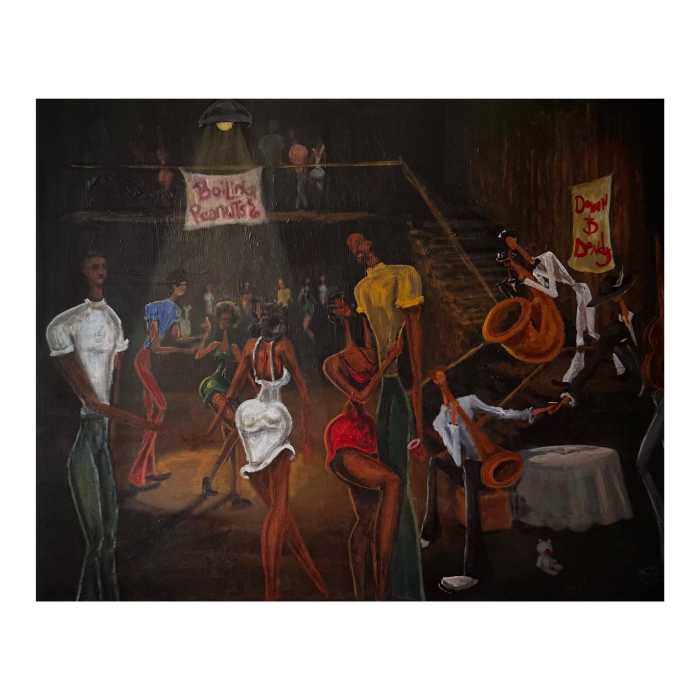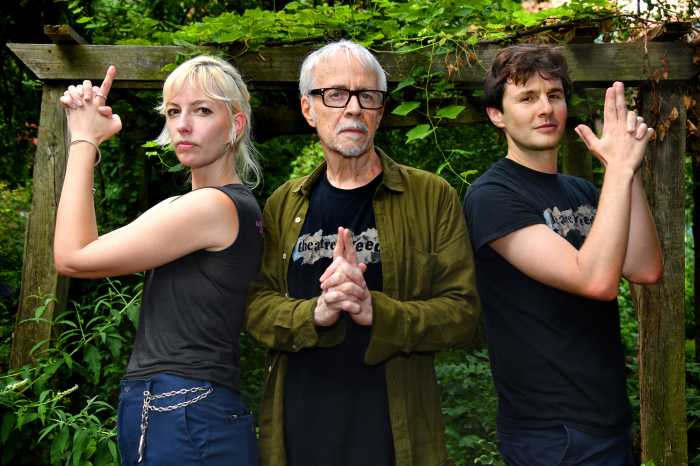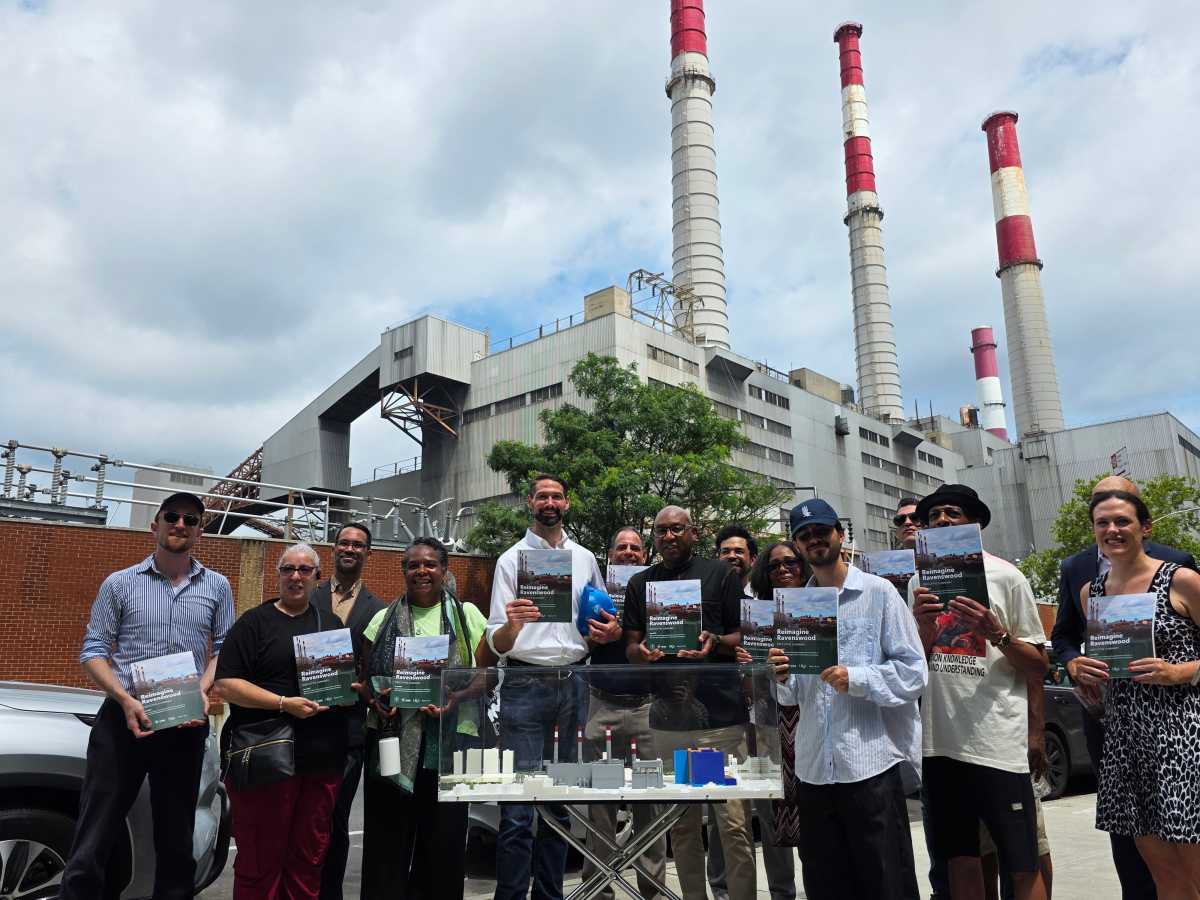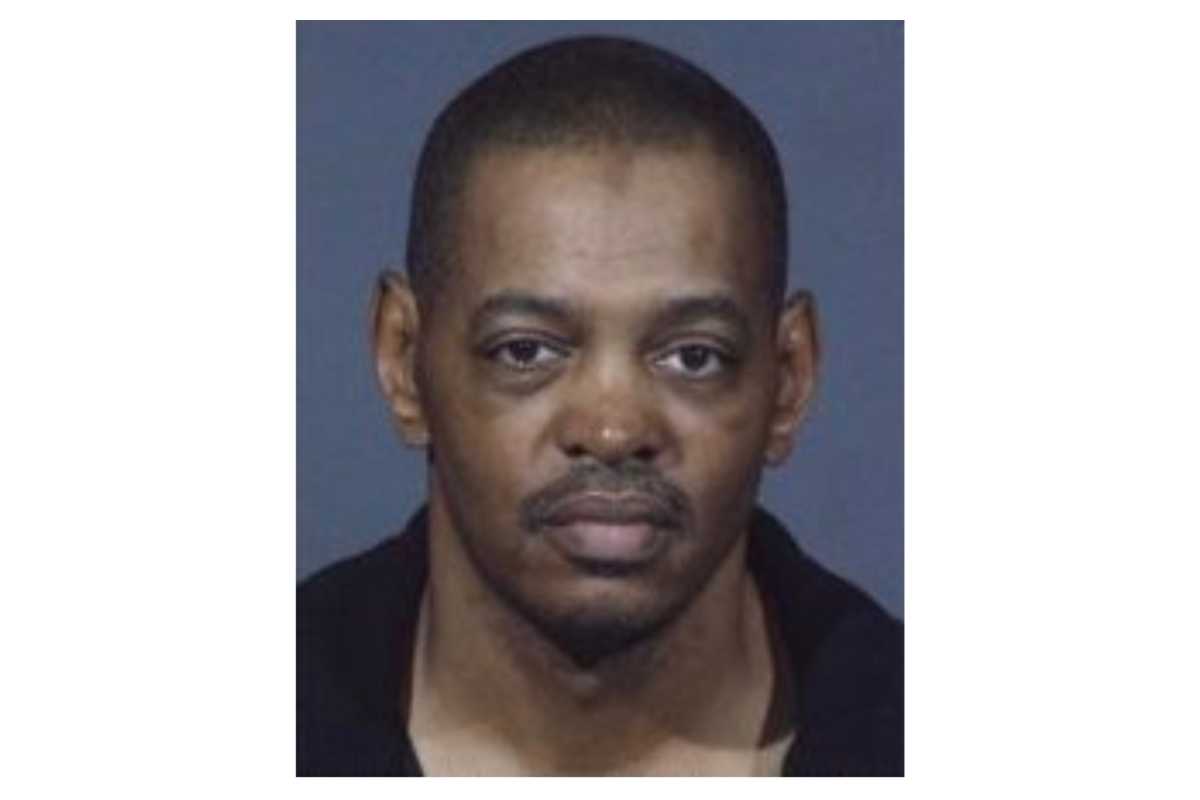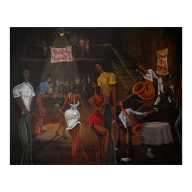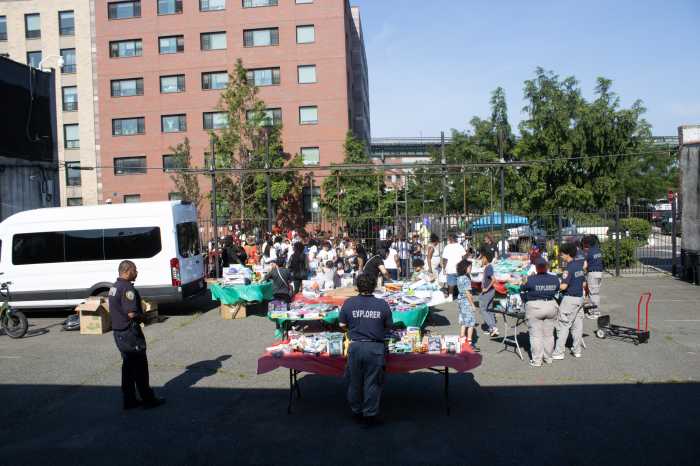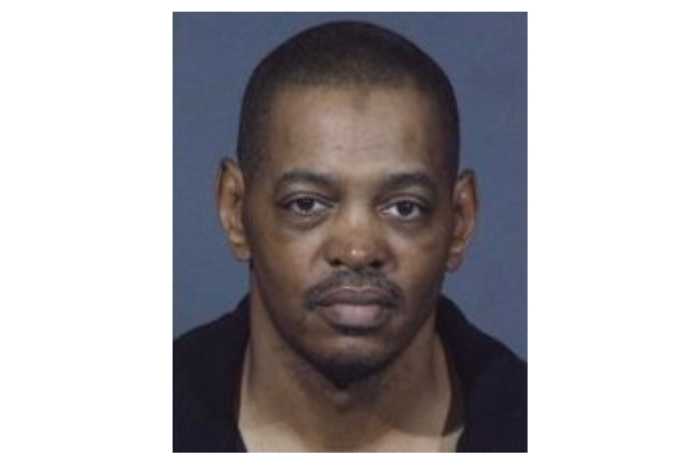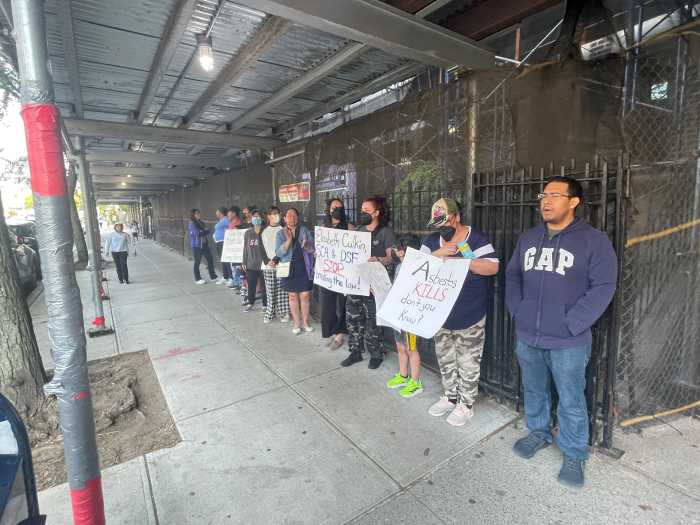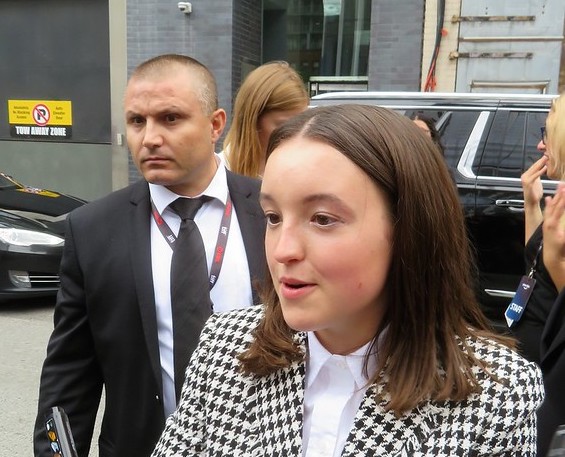By Lincoln Anderson
Sam Turvey was starting to speak at a memorial for Antonio Pagan at Baruch College last Wednesday night, when Howard Hemsley shouted out from the back of the Engelman Recital Hall.
“Would it feel better if I yell ‘Die yuppie scum!’” he interjected, eliciting claps and laughter from the about 150 people assembled.
As Turvey, former co-chairperson of the Tompkins Square Park Neighborhood Coalition, and Hemsley later explained, that was what East Village radical activists used to howl at Turvey whenever he spoke at Community Board 3 meetings.
As a photo of Pagan’s wide-smiling and bearded face set against a deep blue background was projected on a screen above the stage, speakers shared memories of the former councilmember, and his colorful yet determined personality.
Pagan — who represented the East Village from 1991 to ’97 — died Jan. 25 at the age of just 50. His love of food and drink took a fatal tool — he was severely obese when he died at Beth Israel Hospital, of organ failure.
Above all, speaker after speaker said, Pagan was always himself, a unique character, who always stood up for what he believed in.
Arlene Harrison recalled how, in 1994, Pagan supported Gramercy residents in their fight to stop a state-sponsored facility for substance abusers from opening across from Washington Irving High School. Pagan hastily organized a meeting at Pete’s Tavern, and the Irving Place Community Association was born. In response to the community pressure, quite quickly, a new tenant was found for the space.
“The state had just dumped the Cuomo homeless center on us,” Harrison recalled. She was referring to housing on E. 13th St. and Fourth Ave. for formerly homeless and low-income families, developed by Project HELP, an organization headed by Andrew Cuomo, then a high-ranking Housing and Urban Development official.
Community Access, the group sponsoring the Irving Place facility, charged that rejecting its project violated the federal Fair Housing Act. But Pagan stood firm.
“We were on the way to the Supreme Court when HUD gave up,” Harrison said. “Community groups can take heart from our actions here,” she said. Turning to look up at Pagan’s photo, she said, “Thank you, Antonio.”
Former City Councilmember Charles Millard, a Republican who represented the Upper East Side, said of his former colleague Pagan, “What he was — he was himself. … When people stand up for themselves — and what they are — it makes everybody else stronger.”
Jerry Kurowycky, owner of the former East Village butcher shop bearing his name, said Pagan helped the neighborhood’s Ukrainian community get politically active.
“We’ve been there only for 150 years,” he noted dryly. “As you know, Antonio’s predecessor, Miriam [Friedlander], she hated us with a passion. We tried to make alliances — no one cared about us. When Antonio came on the scene, he became a friend instantly. Antonio made the Ukrainian community of the Lower East Side wake up, and we are grateful for it.”
Lynn Pentecost, executive director of the Lower Eastside Girls Club, said she met Pagan during the struggle over the dysfunctional Third St. Men’s Shelter. She recounted how the city would drop men off at the shelter by day, then bus them out again at night.
“It was Antonio and Howard Hemsley who stood up and said, ‘Shouldn’t a shelter shelter people?’ And from there we went on to the Tompkins Square Park campaign,” Pentecost said. “Antonio said, ‘Wait a minute — why are people fighting for the right of people to live outdoors in Tompkins Square Park? We should be fighting for the right to housing.’”
Pentecost noted that it was the sight of Pagan and Zulma Zayas working in their “dumpy office” at Lower East Side Coalition Housing — where Pagan worked before and after the Council — on Avenue B that showed her that “normal people” could get things done.
“And — done deal,” Pentecost said proudly, “July of this year, we’re breaking ground on the Lower East Side Girls Club.”
In his remarks, Turvey said of the opposition they faced, “These anarchists were dangerous. One of them, Daniel Rakowitz, carved up his girlfriend and left her bones in the Port Authority. It took tremendous political courage for Antonio to stand up to these people.”
Turvey remembered how Pagan’s foes used to like to say he wasn’t a lawyer. But Turvey said Pagan more than held his own on a panel that featured Pagan, a woman who claimed her child was pricked with a hypodermic needle in the sharps-strewn park, radical attorney Ron Kuby and Village Voice reporter Sarah Ferguson.
“I don’t know where Sarah went to school — or if she went to school,” Turvey said as the crowd chuckled. “Antonio that night wiped the floor with Kuby,” he crowed as the audience clapped.
Turvey also produced Tompkins Square’s Charlie Parker Jazz Festival from 1993 to 2002, which he called a “pet project” of Pagan’s.
“I’m biased, but I don’t think New York reveals itself any better than on those Sundays,” Turvey said of the festival.
Lisa Ramaci, a former district leader and C.B. 3 member, spoke of a pivotal meeting in 1990 at the Boys’ Club on E. 10th St., when Pagan faced down the radicals, putting them on notice that things would change.
“He was wearing a baby-blue suit, and he had taken a happy pill” to calm his nerves, she said. “He told the anarchists we weren’t going to let them run wild in the neighborhood.”
Bill O’Reilly, who was a City Council employee when Pagan was in office, said, “Antonio didn’t care who you were as long as you weren’t mean and were honest. He abhorred backstabbing. He loved his community and didn’t believe it should be dumped on just because people are poor.”
O’Reilly suggested E. Houston St. be renamed “Antonio Pagan Way.”
Chris Lynn, former commissioner of the city’s Department of Transportation, as well as the Taxi and Limousine Commission, said Pagan was unfairly maligned in the gay community.
“He pushed the agenda and helped the gay and lesbian community,” Lynn said. “Some of you might not believe it — but he did.” Lynn recalled Pagan once complaining about gay activists, “They want me to throw condoms at City Hall. Are they willing to support my neighborhood?’”
Pagan also represented diversity within the gay community, according to Lynn.
“Most people thought that gays and lesbians were white and came from Greenwich Village and talked about only one or two issues,” he noted.
Marty Algaze, former president of the Stonewall Democrats political club, harkened back to the historic moment in 1991 when Pagan and Tom Duane were elected as the city’s first openly gay councilmembers.
“That was a very big day in the gay and lesbian community — things have never been the same,” he reflected.
“Antonio loved life, he loved to socialize,” Algaze said. “He loved good food, drinks. He loved to laugh, he loved good jokes. He knew all the hottest bars and hottest restaurants. All the bartenders knew him. When you went out for drinks with Antonio, you knew you were going to have a great time. Who could forget Antonio’s New Year’s Eve parties? Formal attire, champagne all night long.
“I am sure wherever he is now, he is inviting someone for drinks,” Algaze mused. “They are making jokes and having a great time — and planning next year’s New Year’s Eve party.”
Other speakers included former City Council Speaker Peter Vallone; Jane Crotty, former Community Board 4 chairperson; and developer Don Capoccia. Longtime Pagan aide Anne Hayes gave welcoming remarks and was the emcee.
Also in attendance were Susan Vaughn and Martha Danziger, former C.B. 3 chairperson and district manager, respectively; Ray Cline and Carmen Barreto, of Village Reform Democratic Club, and Tim James, formerly of V.R.D.C.; former District Leader Roberto Caballero, and Roberto Napoleon, Baruch Houses Tenants Association president.



